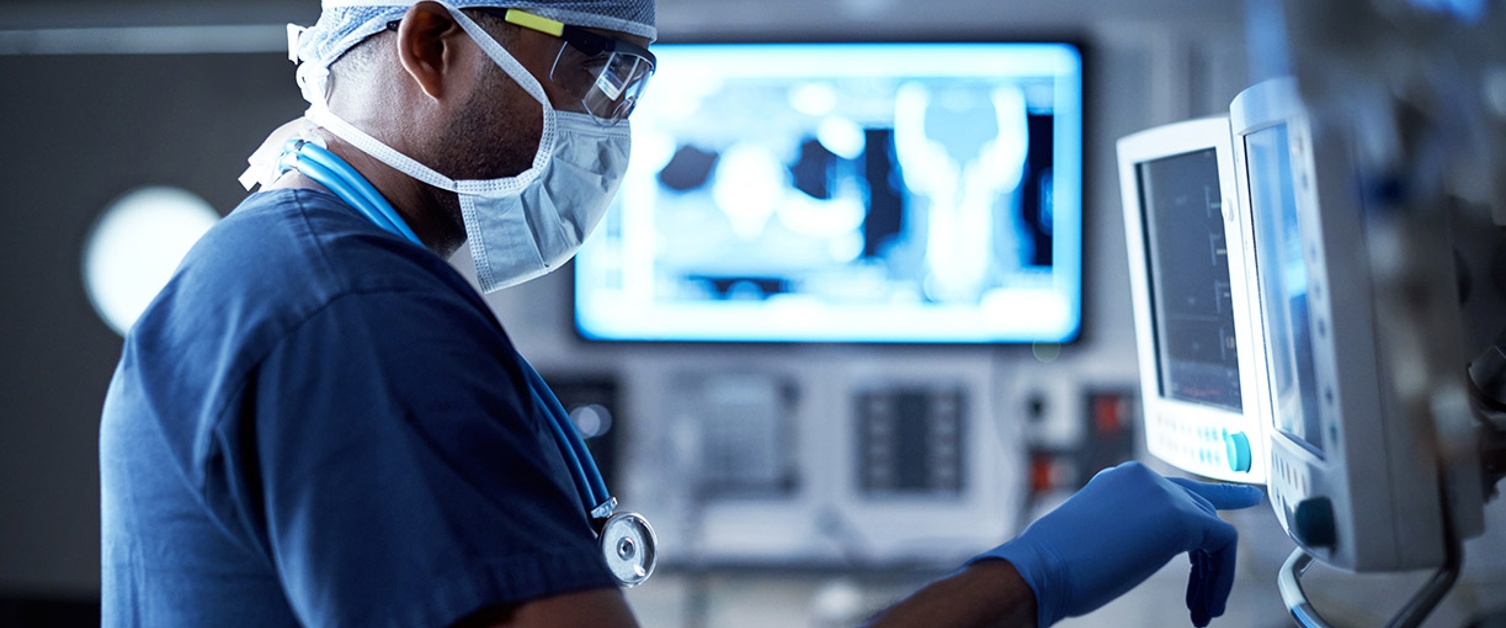Prostate cancer affects 1 in 8 men throughout their lifetime. Due to increasing longevity and increased awareness the incidence and prevalence of prostate cancer is increasing.
Prostate cancer is predominantly diagnosed using Magnetic Resonance (MRI) scans; however these scans require specialist interpretation and timely reporting. A lack of radiologists can be a limiting factor, especially as demand grows this leads to delays in the diagnostic pathway.

Project aims:
The JivaRDX AI/ML-based MRI platform was evaluated over eighteen months across all 4 acute hospital sites within Hywel Dda University Health Board. As part of the current evaluation, we retrospectively analysed scans taken of 121 patients with suspected prostate cancer. These anonymised scans, combined with levels of blood prostate specific antigen (PSA) (a known biomarker for prostate cancer) and patient age, were used to create a feasibility demonstration of the JivaRDX platform as a multimodal predictor of the presence of the disease.
Project kick-off:
The AI assisted prostate cancer diagnosis was supported by the Moondance Cancer Initiative and a mixed methods approach was undertaken. Inclusion and exclusion criteria was applied and patient data was anonymised at source.
Project challenges:
The aim of this evaluation was to test for non-inferiority, in terms of sensitivity and specificity, of the software against independent clinical & radiology experts and quantify early diagnostic and Value-Based healthcare benefits. The evaluation addressed the three priority areas:
- Diagnosis: The effective of the Jiva.ai solution to diagnose PCa more accurately in the clinical pathway (MRI scan).
- Evaluate whether the JIVA.ai solution is scalable and specifically designed to accelerate radiological assessment and thereby speed treatment decisions.
- Value-based healthcare to quantify the benefit of the Jiva.ai solution to tangible patient outcomes.
Project outcomes:
In conclusion the JivaRDX AI/ML based MRI model was found to provide 77% sensitivity, 65% specificity & 69% accuracy in detecting prostate cancer. Multiple studies have shown Radiologist specificity at 57%. Whilst these results are extremely promising, further analysis is required before JivaRDX is moved into routine clinical care within Hywel Dda. The JivaRDX system has proven to be sensitive and specific in terms of its diagnosis potential and further studies are required to refine the model. We found that the system has the capability to integrate into our current clinical systems and pathways.
Furthermore, our engagements with clinical teams and patients identifies a general positive reaction to the use of AI as long as there are safeguards in place. The results from the Health Enterprise East decision analytical model suggest that the JivaRDX system resulted in average cost savings of £154 (95% CI:-£ 206; -£ 98) per patient over the modelled time. There is uncertainty around the potential impact on health outcomes as the confidence interval indicates that there is insufficient evidence to reject the null hypothesis that JivaRDX has no impact on health outcomes. The base case result suggests that JivaRDX resulted in a gain of 0.125 QALYs per patient.
Project funding:
Our thanks also to the Moondance Cancer Initiative for funding the evaluation and to Dr Megan Mathias MBE & Wendy Evans for their unwavering support.
Project team and partners:
Professor Chris Hopkins, Consultant Clinical Scientist & Head of Innovation & the Tritech Institute, Hywel Dda University Health Board Dr Rachel Gemine, Deputy Head, Mr Billy Woods, Clinical Scientist, Professor Keir Lewis, Clinical Lead, Tritech, Hywel Dda University Health Board; Dr Manish Patel, Dr Andrew Thompson, Dr Richard Hammersley & Dr Esin Karahan from Jiva.ai Mr Sohail Moosa, Consultant Urologist, Hywel Dda University Health Board.
For more information visit: https://tritech.nhs.wales/



